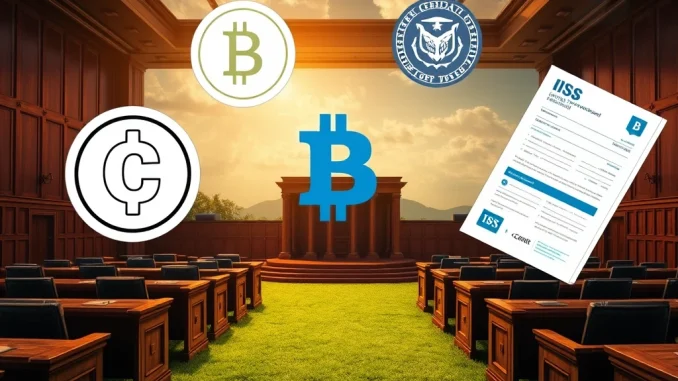
The intersection of cryptocurrency and government regulation continues to spark significant legal debates, particularly concerning user privacy and tax obligations. A key case currently unfolding involves the U.S. government defending the actions of the IRS against a challenge brought by a Coinbase user. This Coinbase IRS dispute highlights the ongoing tension between digital asset ownership and traditional financial oversight.
What Sparked the IRS Crypto Tax Probe?
The roots of this legal challenge trace back to 2016. At that time, the Internal Revenue Service (IRS) initiated an investigation driven by concerns over potential widespread underreporting of income from cryptocurrency transactions. To address this, the IRS issued a ‘John Doe’ summons to Coinbase, one of the largest cryptocurrency exchanges. This type of summons is used to seek information about a group of individuals whose identities are unknown but who are involved in specific transactions.
The summons compelled Coinbase to disclose data on users who conducted high-volume transactions. Among those affected was James Harper, a Coinbase user whose information was targeted by the summons.
Does the Fourth Amendment Protect Your Crypto Data?
James Harper challenged the IRS summons, arguing that it violated his Fourth Amendment rights, which protect against unreasonable searches and seizures. His core argument was that his financial records held by Coinbase should be considered private papers, shielded by the Fourth Amendment.
However, lower courts consistently sided with the IRS. Their reasoning was based on the principle that records held by a third party, such as a financial institution or, in this case, a cryptocurrency exchange, are considered business records of that entity, not private papers of the individual user. Therefore, accessing these records via a summons does not infringe upon the user’s Fourth Amendment rights.
In the latest development, the U.S. government has urged the Supreme Court to reject Harper’s appeal. The government’s defense rests on several points:
- Supreme Court Precedent: They cite existing case law that establishes the legal standing for third-party record summonses.
- Coinbase’s Privacy Policy: The government noted that Coinbase’s own terms of service and privacy policy explicitly warn users that their data may be shared with law enforcement or regulatory bodies when legally required. This suggests users have a reduced expectation of privacy regarding data held by the exchange.
This case is significant for defining the boundaries of crypto privacy when interacting with centralized exchanges and how traditional legal frameworks apply to digital assets and IRS crypto tax enforcement.
Beyond the IRS: Coinbase’s Other Legal Headaches
While the IRS case is a major legal battle, Coinbase is also facing separate legal challenges. The exchange recently experienced a data breach that reportedly affected sensitive information belonging to approximately 1% of its monthly user base. Notable individuals, including Sequoia Capital partner Roelof Botha, were among those impacted.
This incident has triggered a wave of legal action. At least six Coinbase lawsuits have been filed following the breach. These lawsuits generally accuse Coinbase of:
- Inadequate security measures to protect user data.
- Mishandling its response to the data breach after it occurred.
These separate lawsuits add to the legal pressures on Coinbase, highlighting the complex regulatory and security environment faced by major cryptocurrency platforms.
Summary: The Evolving Landscape of Crypto Regulation and Privacy
The U.S. government’s defense of the IRS in the Coinbase IRS case underscores the determination of regulatory bodies to ensure compliance with tax laws within the cryptocurrency space. The argument that user data held by exchanges is not protected by the Fourth Amendment under these circumstances sets a potentially important precedent for crypto privacy. Coupled with the separate Coinbase lawsuits stemming from the data breach, it’s clear that centralized exchanges and their users navigate a landscape filled with legal and security challenges. Staying informed about these developments is crucial for anyone involved in the crypto market.



